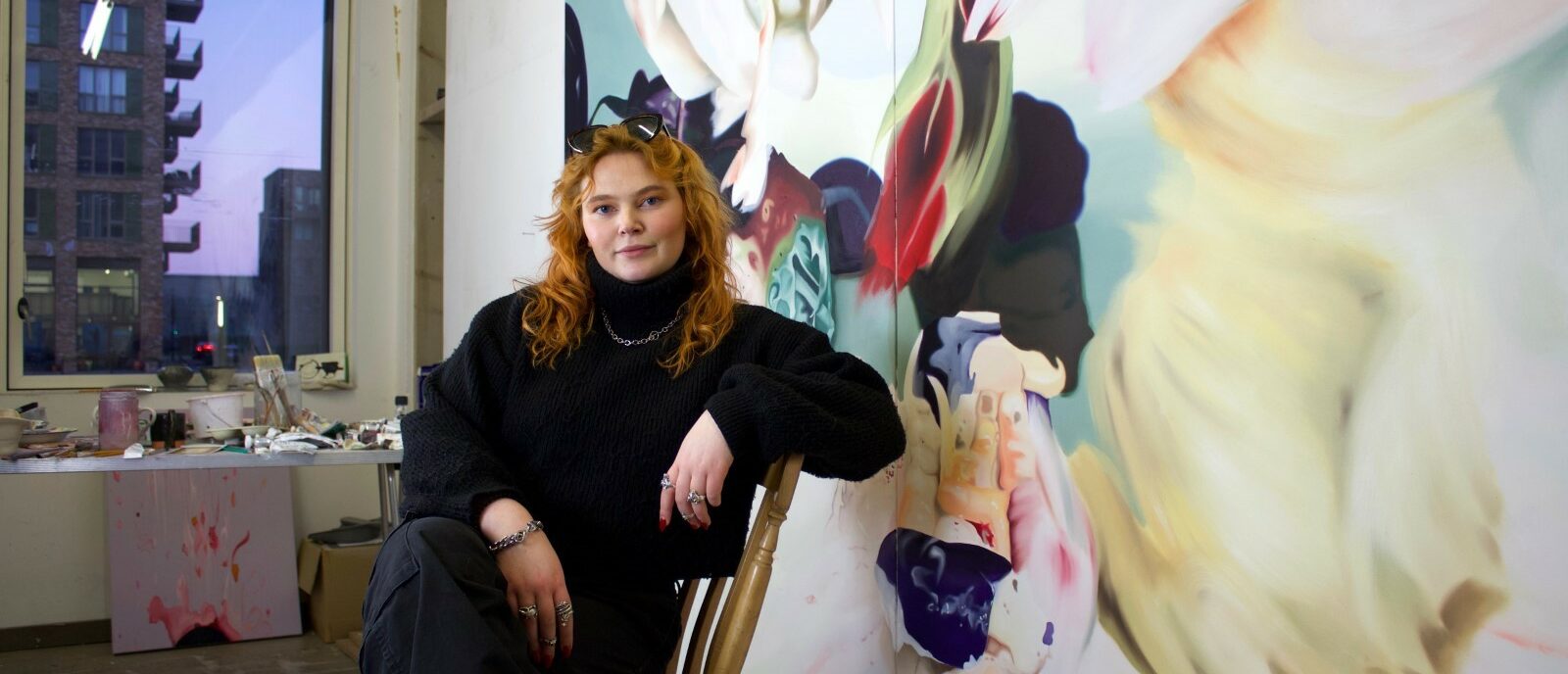
Bow Arts chats to artist Izzie Beirne about what inspires her and how she won the Almacantar Studio Award, winning a studio at Royal Albert Wharf for a whole year.
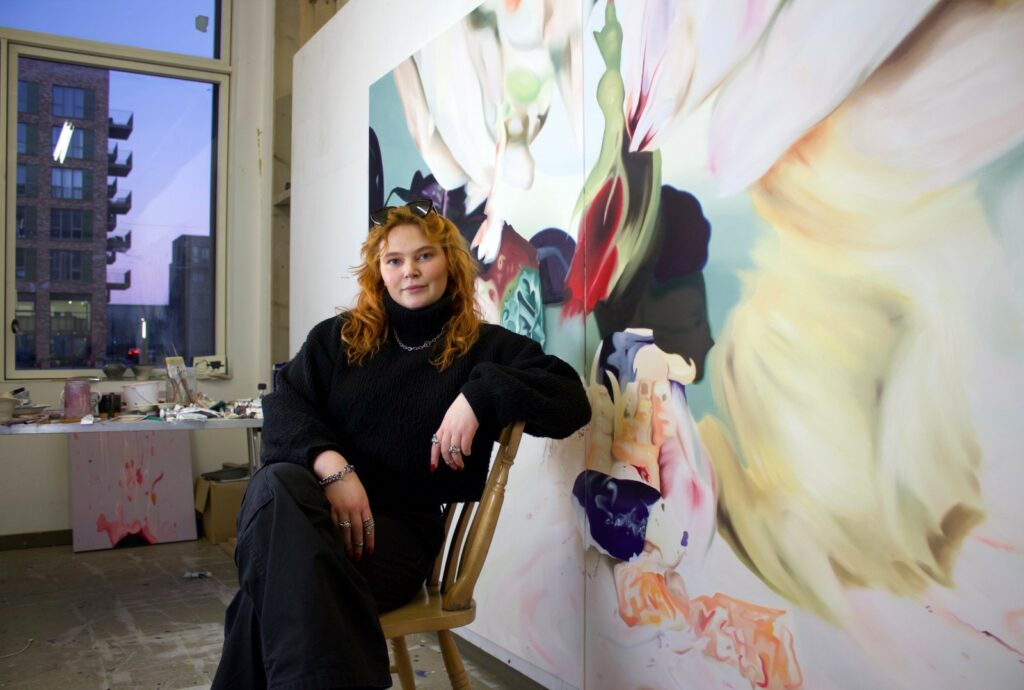
Introduce yourself and tell us a little about your practice
I’m from Newcastle Upon Tyne and I studied my BA in fine art at Leeds Arts University where I graduated in 2018. I moved to London a couple of years ago to do my Master’s in fine art at Goldsmiths University which I graduated from last summer. I primarily work with painting and ceramics, using my studio with Bow Arts as my painting studio.
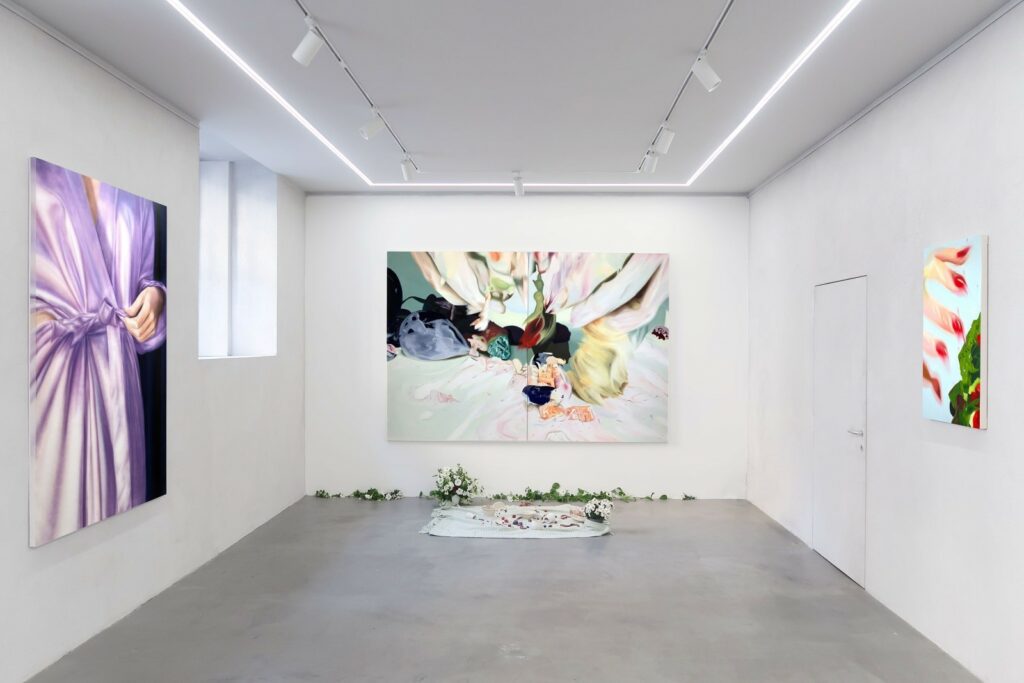
What are you working on at the moment?
I’ve just finished making two paintings for the CAN Art Fair in Ibiza at the end of June, which are being shown by Plan X Gallery. I’m now working towards a group exhibition Food As Origin which is the inaugural opening of Twilight Contemporary in September. In this next series of paintings the reference images are all taken from Peter Greenaway’s film ‘The Cook, the Thief, His Wife and Her Lover’ made in 1989.
I’m also always working on my ceramics, with a weekly class at The Kiln Rooms. At the moment I’m focusing on developing technical skills so when I have a realised idea, it’s easier to execute.
What is the drive/motivation behind your work?
I like creating work that has a duality to it, in a way that’s almost ethereal and otherworldly contrasted with something that creates a sinister undertone. This sinister aspect can be through the use of ceramics, how the paintings are hung or the content of the painting. I also really like to play around with how contemporary painting is shown and viewed. As my next body of work is directly linked to film, I’m wondering about paintings being hung in a way that speaks to the language of film, playing with painting as set.
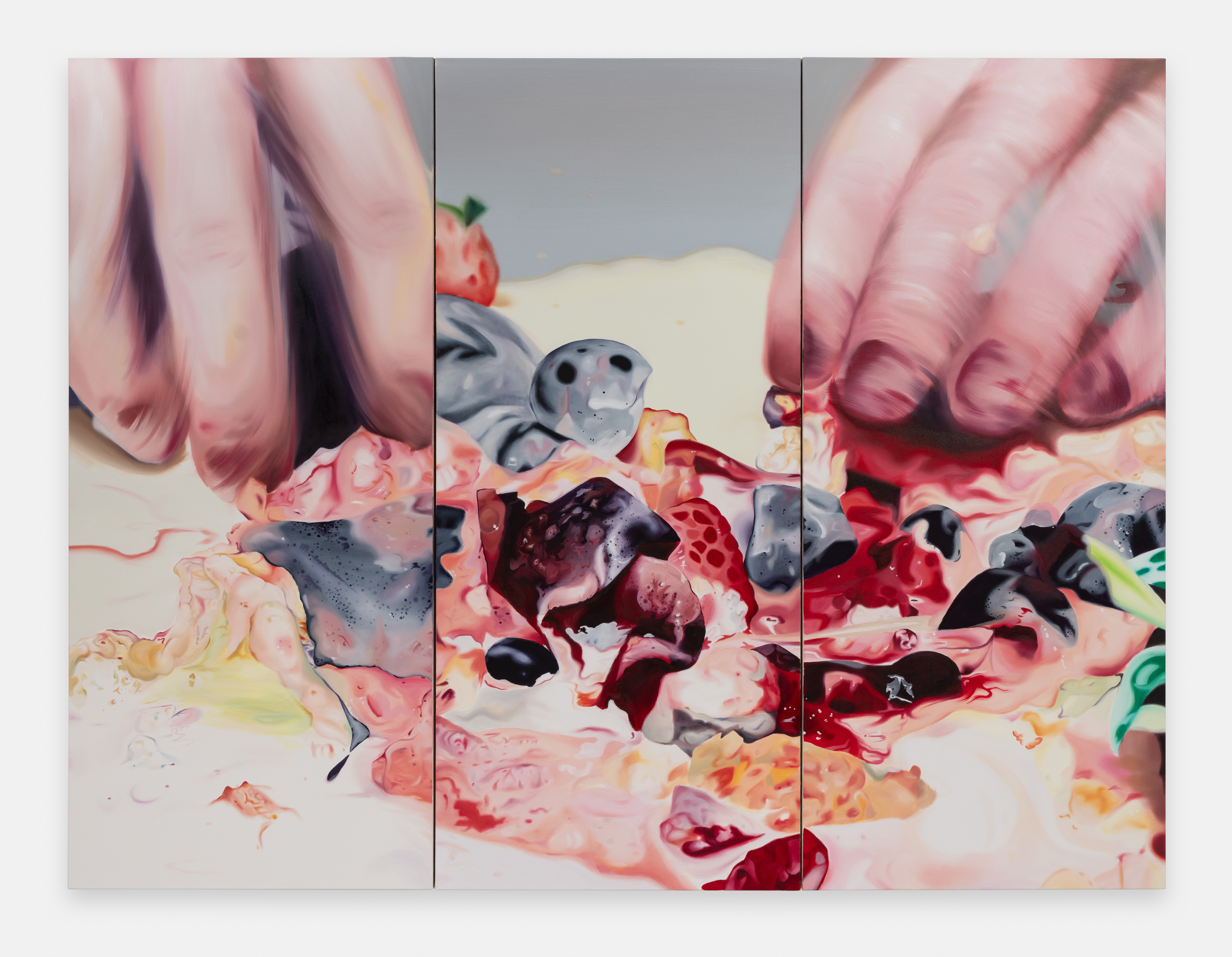
What themes are you interested in?
The themes surround feminist topics such as women’s safety, sexual violence and trauma, internalised punishment and then recovery and a reclamation of pleasure. These are messy and hard-hitting topics which are close to my heart because of lived experience and contemporary politics. Dystopian, poetic and horror literature and film feed into my work as well, as I find it interesting when film and literature tread the line of what could be real or Imagined.
Who are your artistic influences/inspirations?
I’ve mentioned Peter Greenaway as a huge influence and film in general is a great inspiration for my practice. Some painters I find influential are Issy Wood, Lisa Brice and Mohammed Sami who all are doing really interesting things in regard to pop culture, reframing art history and place. I love Lindsey Mendick’s ceramics which have incredible narratives, for example her recent work in The Strange Clay exhibition at the Hayward Gallery. Literature wise I’ve found Angela Carter’s writing very influential on my work because it blends feminism, reality, horror and imagined worlds.
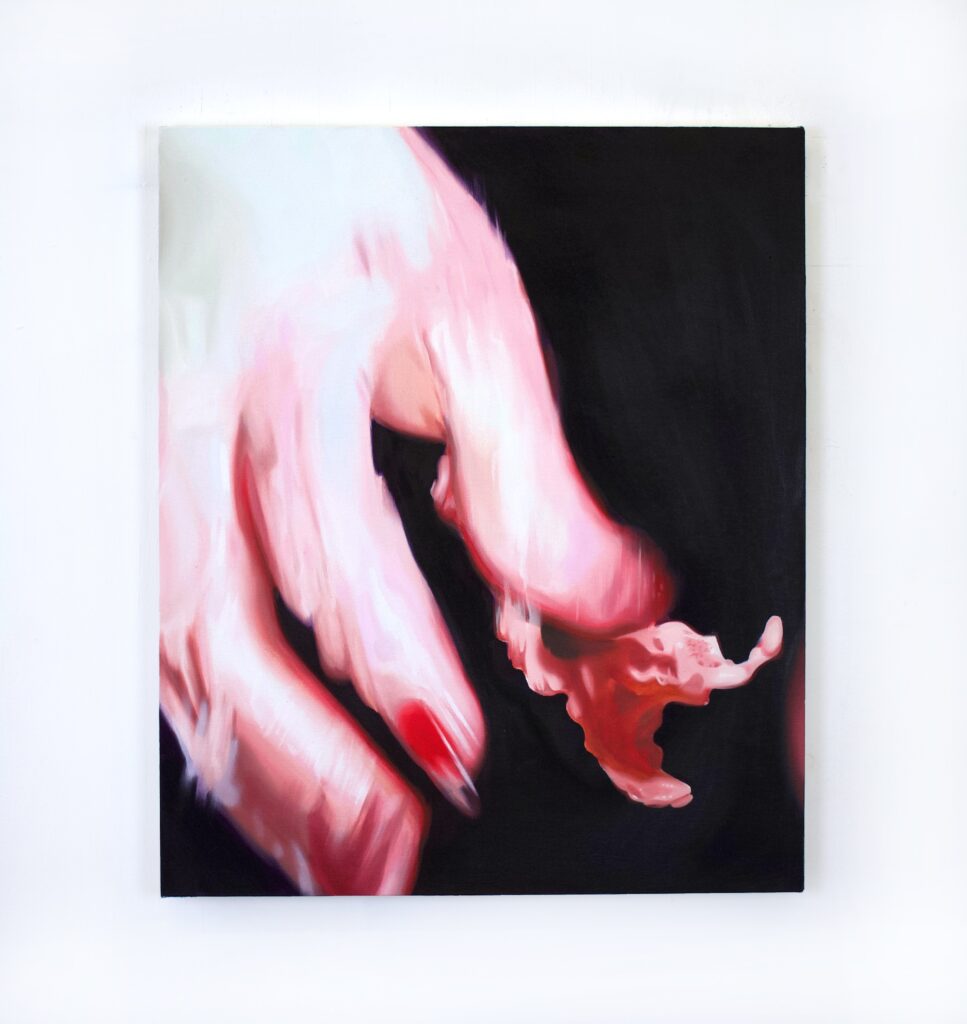
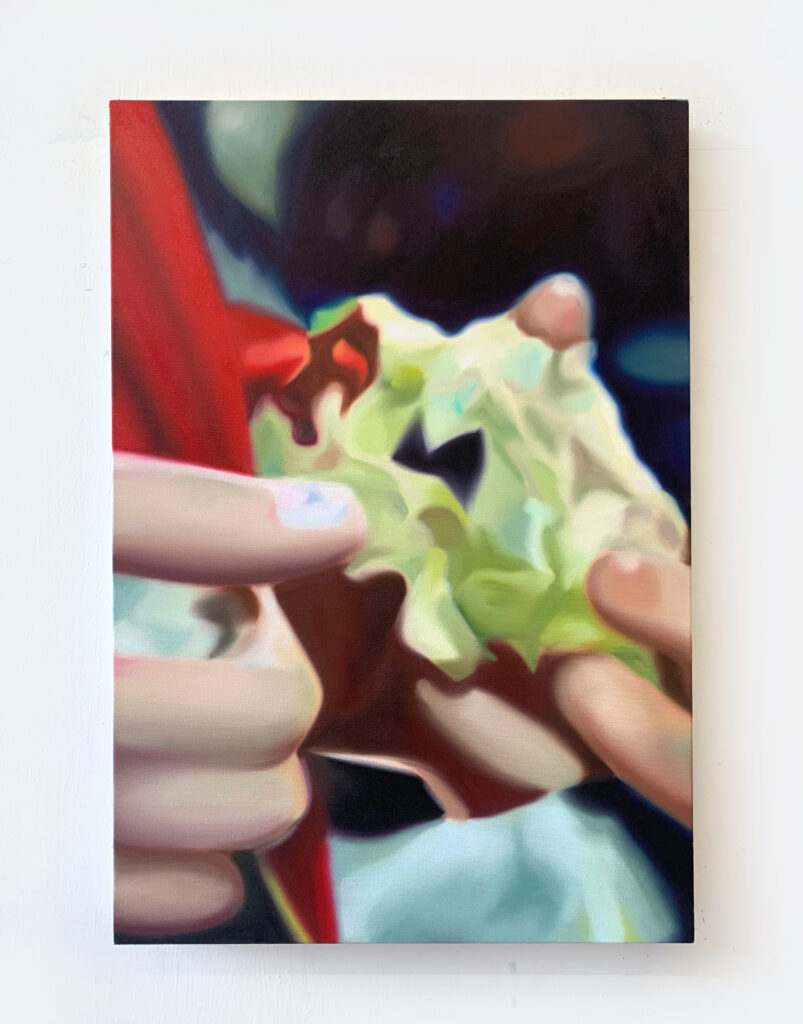
How has having an affordable studio impacted your practice/what is it you like about having your studio?
I was incredibly lucky to win the Almacantar Studio Award at the end of my Master’s degree, which has given me a year in the studio at Bow’s Royal Albert Wharf Studios. I’d like to say a huge thank you to Almacantar, Bow Arts and Open Source Arts for this incredible opportunity which has led to a massive development in my practice with space and time.
The studio is a beautiful bright space which is perfect for painting, and I feel very lucky to have it. During the year I’ve made new work for exhibitions with Guts Gallery, Unit London and Plan X and it has been brilliant to have the space to make this happen.
What are the challenges you face as an artist/designer/maker?
Over the last year I’ve learned a lot about juggling jobs to allow for enough money to live whilst also having enough time to maintain a critical practice. There’s also the challenge of getting your work seen by galleries and potential buyers and collaborators and maintaining the visibility of your practice. Then there is the internal challenge of maintaining momentum, being resilient when you get rejections and remaining authentic to your work. I find all these aspects difficult and struggle sometimes with giving myself enough time to critically think about the practice because it feels like you’re not being productive enough, but these are usually the times most crucial to the work.
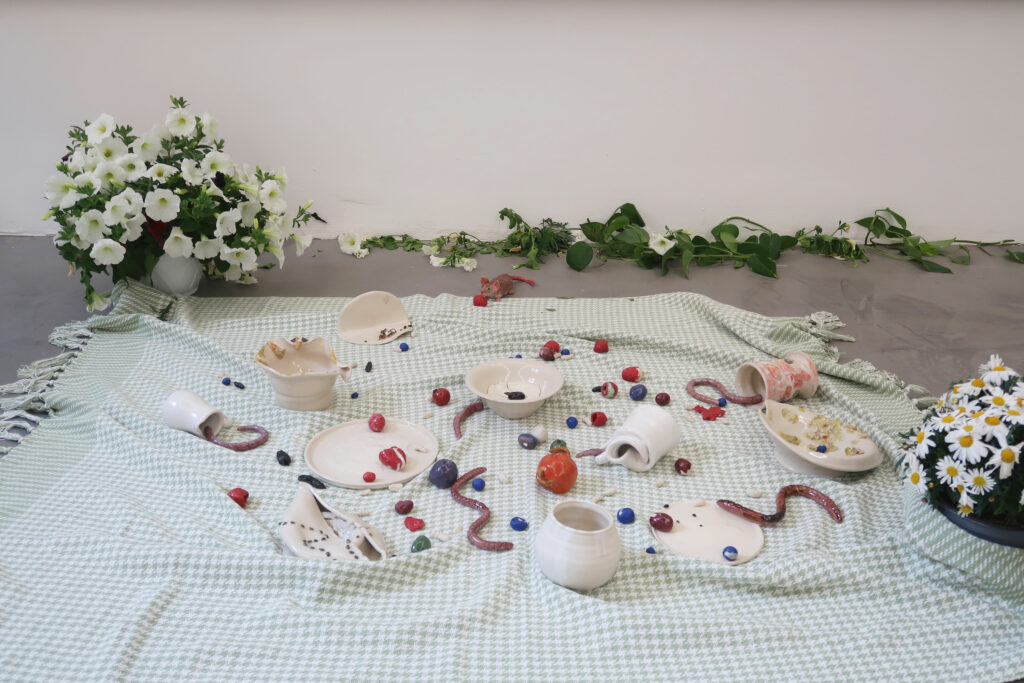
Is there a particular modern day societal issue that inspires your practice?
Issues surrounding women’s safety, health, pressures and availability of support are very important to me personally and within my work.
Where can we find your work?
I keep most up to date on Instagram @izziebeirneart and I also have a website.
Bio
Izzie Beirne (b.1996) is a UK, London based artist from Newcastle Upon Tyne. Beirne studied her BA (Hons) Fine Art at Leeds Arts University (2019) and her MFA in Fine Art from Goldsmiths University in London (2023). Beirne has exhibited at Plan X Gallery, Guts Gallery, Unit London and Maximillian Wolfgang Gallery amongst others. Beirne won the Almacantar Award for her work in the postgraduate degree show (2023) and was shortlisted for the Acme Award and Global Design Graduate Show. Beirne primarily works with painting alongside ceramics, creating works which deal with feminist themes of sexual violence, healing and a reclamation of pleasure. Beirne’s process begins by making videos or researching films that deal with the subjects she is exploring, for example ‘The Cook the Thief, His Wife and Her Lover’ by Peter Greenaway. From these films Beirne finds stills to transform into paintings, creating canvases with frenzied movements, blur and variety of focus. Beirne uses ceramics to add to the level of discomfort permeating the work, creating pieces that reference decay, fragility and the grotesque. Ceramic worms, maggots and plates of fruit and cream create an uneasy dialogue with the visceral cinematic paintings. This push and pull in the works capture the themes in her practice which are messy, gut wrenching and hard to digest.